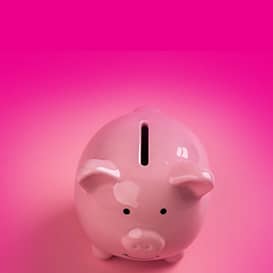Tooth Restoration Aftercare
Actions to Take
Here at Thurmaston Dental, we provide a wide variety of different Dental Restorations to extend the life of damaged teeth; however, to keep them in tip-top conditions you must look after them. Everyone tries to keep up with their oral health to avoid any need for tooth restoration; however, restorations such as fillings or crowns are becoming increasingly normal. Having a tooth restoration prolongs the life of your tooth instead of simply removing it. Tooth extractions should be the last possible treatment to any dental problem.
Slight discomfort and sensitivity will occur for the first 12 to 24 hours after any procedure. The surrounding gums may feel tender for a day or two after surgery, with swelling and slight bleeding being normal – however, if any of these symptoms persist, get in touch with your dentist. By brushing lightly and flossing you can keep the restored tooth and surrounding area clean, avoiding gum disease and helping the healing process.
Tooth Restorations include Dental Fillings, Dental Crowns, Dentures, Tooth Extraction, Root Canal or surgery on your gums (Periodontal). There are many different processes of aftercare you can take, luckily for you, we have listed the best way to take care of your teeth after a restoration below.
Anaesthetic
With most, if not all tooth restoration processes, you will have some form of anaesthetic. This is to numb the surrounding area that is being treated on. Anaesthetic can vary but most will keep your mouth numb for a few hours after surgery, which can cause a few problems:
- Your cheeks will be numb and this may feel rather odd, it is important to avoid biting the inside of your cheek, as they act as a protector surrounding the restored tooth.
- When your mouth is numb it can be hard to feel variable temperatures. Please avoid eating or drinking anything extremely hot as you will run the risk of burning your mouth.
Food & Drink
With your mouth becoming more sensitive after the tooth restoration treatment, it can become difficult to eat as your mouth will often be sore or sensitive. There are a lot of foods you should avoid to help heal your mouth. Here are a few tips to follow:
- Anything Sticky – Stay clear of sticky foods as they can pull on new dental fillings or crowns. You might be thinking of caramel, toffee or chewing gum, but you should also avoid hard sticky sweets, sticky sweet ribs and dates as it’s also hard to remove the sticky tack from your teeth when the surrounding areas are sore.
- Spicy Foods – With your mouth recovering from anaesthetic you may find the numbness is still lingering so it’s good to avoid extreme spice. If you aren’t used to eating spicy foods then eating highly spicy foods may cause you unexpected pain.
- Ice – Drinking a cold beverage can be comforting and help ease any pain on your restored tooth, however, do not start chewing on the ice as it will damage the new dental fillings and crowns. Ice-cold drinks are soothing, but ice applied directly to a newly restored tooth can cause sensitivity pain so be careful.
- Fizzy Drinks – Ensure you are drinking plenty of water and avoid fizzy drinks. They contain a lot of sugar which isn’t the best ingredient to be surrounding a healing tooth.
- Alcoholic Drinks – Alcohol should also be avoided for at least 24 hours after surgery, again these drinks contain a lot of sugar.
- Anything Soft – You might be thinking so what can I eat? Avoiding food for as long as possible is great when trying to heal a restoration. In fact, depending on the restoration your dentist will provide you with more specific information on when you can eat. Stick to soft foods such as soup, yoghurt, smoothies and milkshakes, soft sandwiches and ice-cream.
The Dos
- Use Painkillers – If you experience any pain, taking painkillers will give you mild relief for a few hours
- Take Prescribed Medication – Take any prescribed medication as directed by your dentist.
- Keep a Healthy Diet – Even though it might be hard to eat, try to keep a balanced diet. It can be difficult to eat healthily when you need to soft foods until your swelling dies down.
- Limit Hard & Tough Chewing – You may find it easier to chew on one side of your mouth, the opposite of where you have had a restoration! That way the food is less likely to get caught around your tender gums.
- Use a Salt Rinse – Try a salt rinse 24 – 48 hours after surgery; this will help to heal the area operated on.
- Gently Brush – After gently brushing your teeth for a few days, make sure you resume normal brushing a few days after, including flossing!
- Sleep Upright – Try to sleep with your head elevated as it will relieve any pressure towards your head, jaw and teeth.
- Use a Cooling Patch – Place a Cooling Patch or Cold Compress on your face for 20 minutes, rest it for 10 minutes and then repeat as necessary.
- Apply pressure if there is bleeding – If you have had a tooth extraction, place pressure on the gauze pad for an hour after the surgery and if bleeding is persistent apply new gauze and pressure for a further 45 minutes. If bleeding continues after this time, get in touch with your dentist.
The Don’ts
- Don’t Do Tough Workouts – Avoid any vigorous exercise after you have your tooth restoration surgery, the pressure it causes can hinder the healing process.
- Don’t Use A Straw – Although you might be thinking that it will help keep drink towards one side of your mouth, the sucking motion of a straw will apply unnecessary pressure to the healing tooth.
- Don’t Spit – Just like using a straw, spitting is another motion that will apply unnecessary pressure to the restored tooth.
- Don’t Smoke – Avoid smoking for 24 hours after your dental surgery. Consider quitting altogether, smoking can cause many different oral health problems.
- Don’t Use Mouthwash with Alcohol – Your saliva is needed to help heal your tooth, using an alcohol mouthwash will make your mouth dry.
- Don’t Touch Your Mouth or Gums – Avoid touching the area with your fingers as bacteria will easily affect the healing process.
If you are in need of tooth restoration surgery get in touch with our team here at Thurmaston Dental.
Back to Blog



